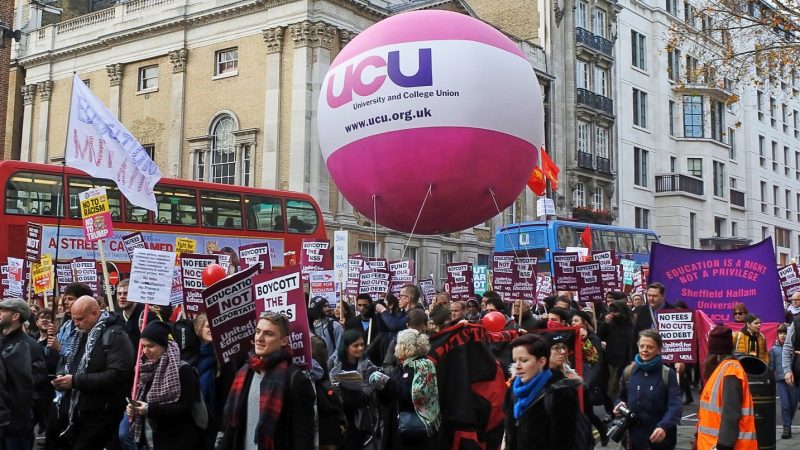UCU is calling for a 10 per cent pay rise for FE staff

The UCU union represents workers in higher and further education. While its campaigns around the pay, pensions and conditions for university staff often get the headlines, UCU is also active in advocating for workers in further education (FE) colleges.
That’s what David Hunter – UCU’s vice president – spoke to Left Foot Forward about at this year’s TUC Congress in Brighton. UCU is currently campaigning for what it calls a ‘New Deal for FE’ – a series of demands to improve the pay and conditions for FE staff.
Setting out why the union deems the campaign to be so important, Hunter told Left Foot Forward that FE is crucial to the future of the economy and for delivering Labour’s plans for growth. He said: “Our new Labour government is really talking about retraining, reskilling, repairing the economy and bringing on growth. And that can’t happen without our members.
“Our members, we train 60 per cent of large companies’ workforces through our colleges and our universities. We train 160,000 apprentices a year. We’re in adult education, retraining. And repairing and recovering our economy can’t happen without our members.
“So, if the Labour government is serious about it, they need to be serious about a new deal for FE.”
So what is this ‘New Deal for FE’ that UCU is calling for? Hunter told Left Foot Forward: “It’s a 10 per cent pay rise, or a £3,000 minimum. Very important is parity with school teachers within three years – we had £9,000 behind school teachers in FE – so it’s trying to get that back over three years. A minimum starting salary of £30,000 to match with school teachers. Currently, people can start on £26,000 – it’s too low and it’s causing a recruitment crisis in FE. It’s to close the equality gaps all over FE that plague our black and women members.”
Alongside these individual demands for improvements for staff, UCU is also campaigning for FE staff to be covered by national collective bargaining agreements. Hunter told Left Foot Forward that the lack of national agreements is why FE staff’s pay hasn’t kept up with that of schoolteachers.
He said: “We need national agreements – national binding bargaining to get agreement on pay, on pay spine, on workloads. The reason we’ve fallen behind schoolteachers by so much – by nearly £10,000 – is that we don’t have national bargaining in our FE sector. It’s college by college since incorporation. We were told at that point that it was going to be, there’d be a marketplace – colleges would be competing for lecturers by paying more and more, and of course that didn’t happen.”
Public debates about education rarely pick up these issues. In fact, they rarely discuss FE at all. Hunter told Left Foot Forward this was a ‘class issue’ and that FE workers are ‘invisible’ in the conversation about education.
“I think it’s a class issue. Our colleges – we teach, we train, we retrain the most disadvantaged in our society, the students with the least voice. And I really do think it’s a class issue why FE gets made invisible”, Hunter says, adding: “Because of our demographics, because we work with the most disadvantaged, because we give them their first, their second their third chances in training and retraining, we’re invisible.”
Chris Jarvis is head of strategy and development at Left Foot Forward
Image credit: It’s No Game – Creative Commons
Left Foot Forward doesn't have the backing of big business or billionaires. We rely on the kind and generous support of ordinary people like you.
You can support hard-hitting journalism that holds the right to account, provides a forum for debate among progressives, and covers the stories the rest of the media ignore. Donate today.



